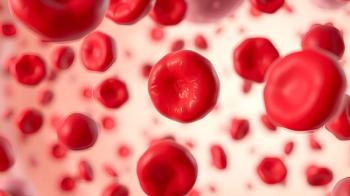
- May/June 2014
- Volume 5
- Issue 3
Minimum Residual Disease-Negative Status in CLL Patients Associated with Prolonged Treatment-Free Survival
In patients with CLL who require first-line therapy, the achievement of a negative minimum residual disease (MRD) status is associated with prolonged treatment-free survival regardless of other prognostic markers or treatments administered, according to the results of a recent study.
Published on April 3, 2014, in Haematologica, the study evaluated 255 patients who received any first-line therapy and who were reevaluated following criteria set by the National Cancer Institute—Working Group.
Researchers noted that patients who obtained MRD negativity had a significantly longer progression-free survival and overall survival regardless of the treatment they received. Despite this promising analysis, CLL is still incurable and at least 30% of patients with MRD negativity following therapy with fludarabine and cyclophosphamide (FC) or FC plus rituximab eventually see a relapse of the disease after 5 years.
The study found that patients who achieve MRD-negative complete response had a median treatment-free survival of 76 months, compared with a median survival of 40 months in patients who had MRD-positive complete response and 11 months in patients with MRD partial response.
“These results could have potential implications when deciding the most appropriate treatment for patients with the disease, and could also set the stage for future MRD-directed therapy in CLL,” the study authors wrote. SPT
Articles in this issue
over 11 years ago
Idelalisib Shows Promise in Blocking Blood Cancer Growthover 11 years ago
One-Fourth of Men Drop Out of Prostate Cancer Active Surveillanceover 11 years ago
Gazyva by Genentechover 11 years ago
GI Cancers: Neuroendocrine Cancer Updateover 11 years ago
Specialty Pharmacy-Specific URAC Standardsover 11 years ago
Trends in Cancer CareNewsletter
Stay informed on drug updates, treatment guidelines, and pharmacy practice trends—subscribe to Pharmacy Times for weekly clinical insights.


























